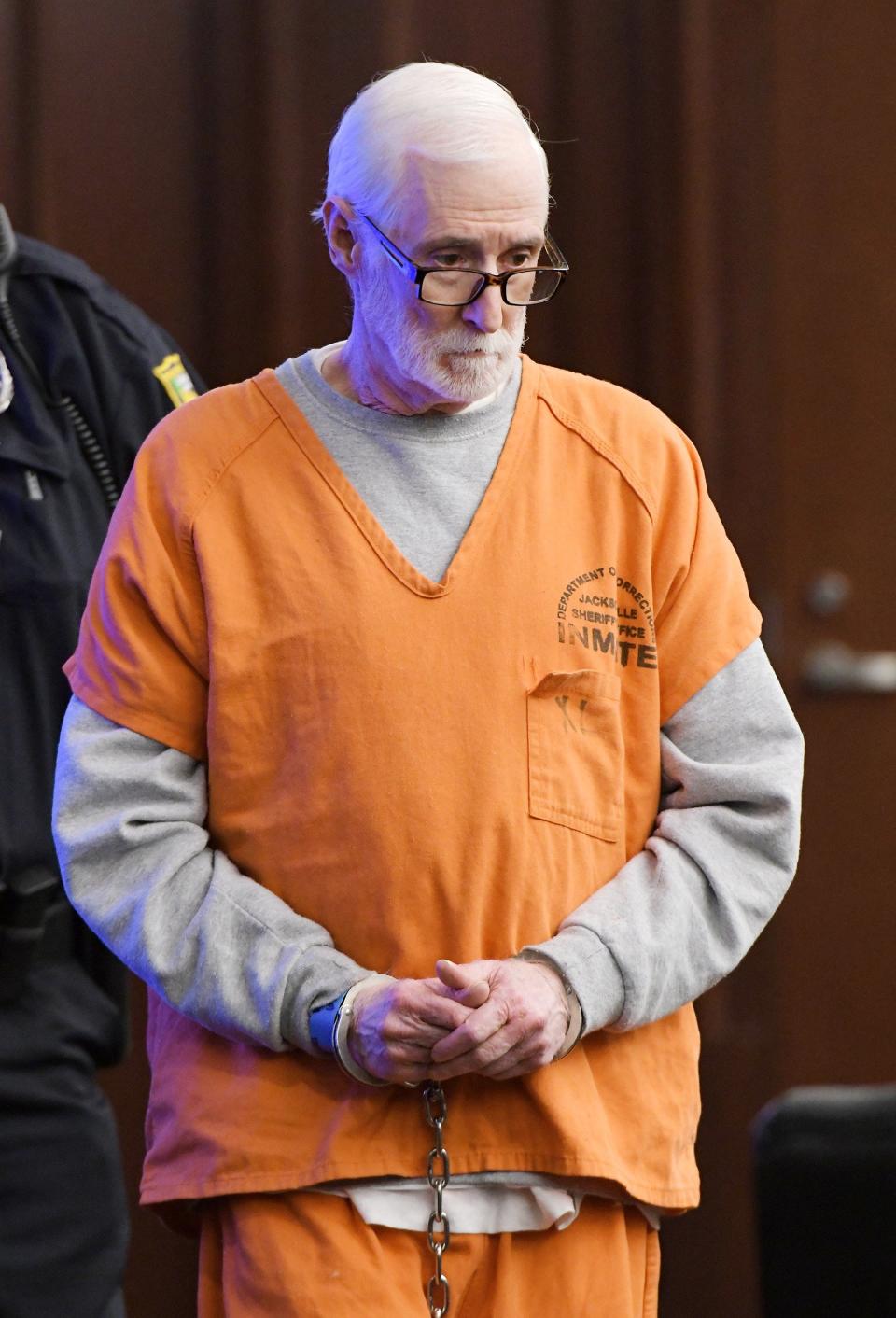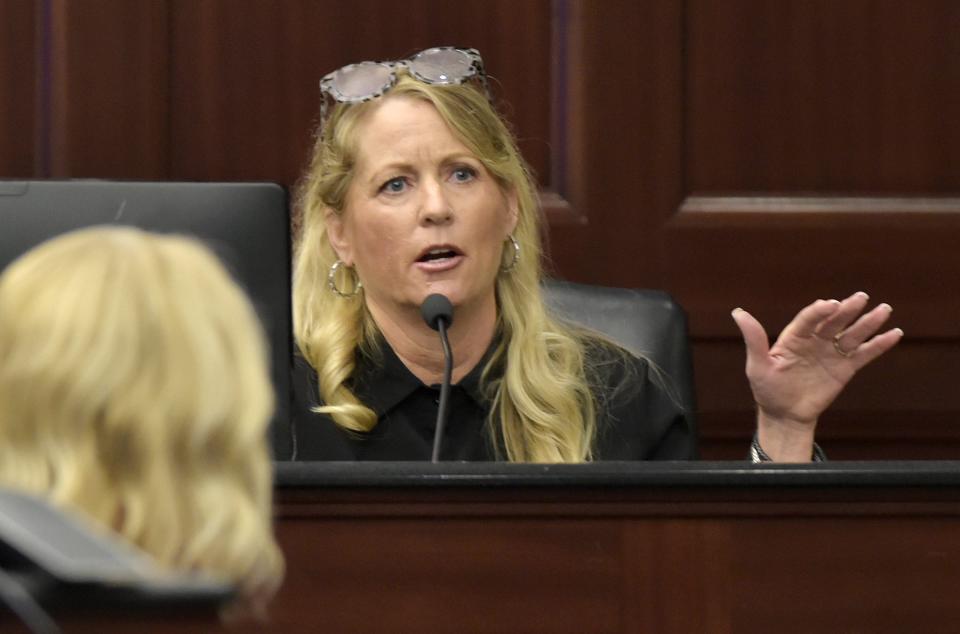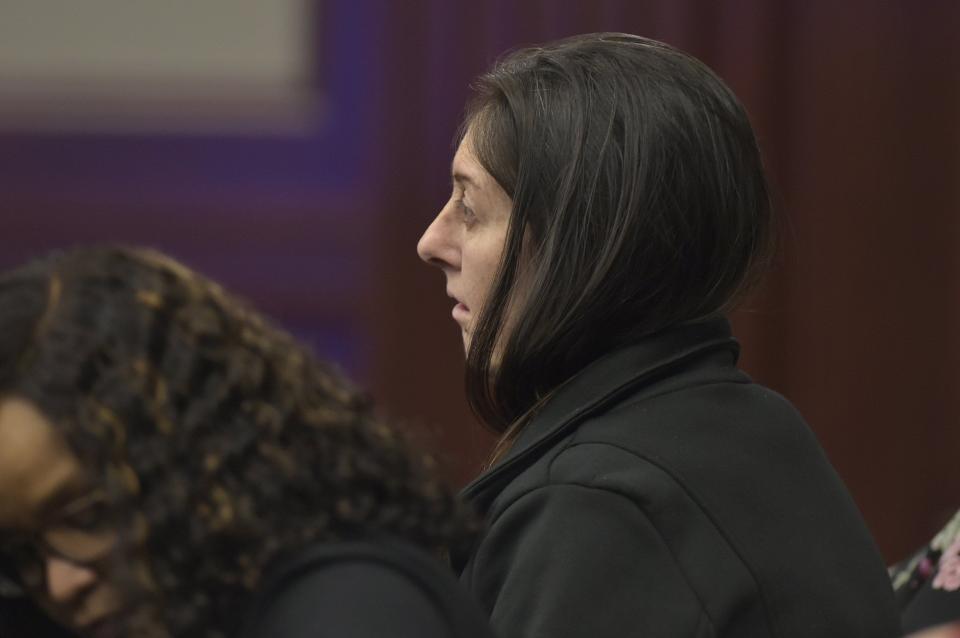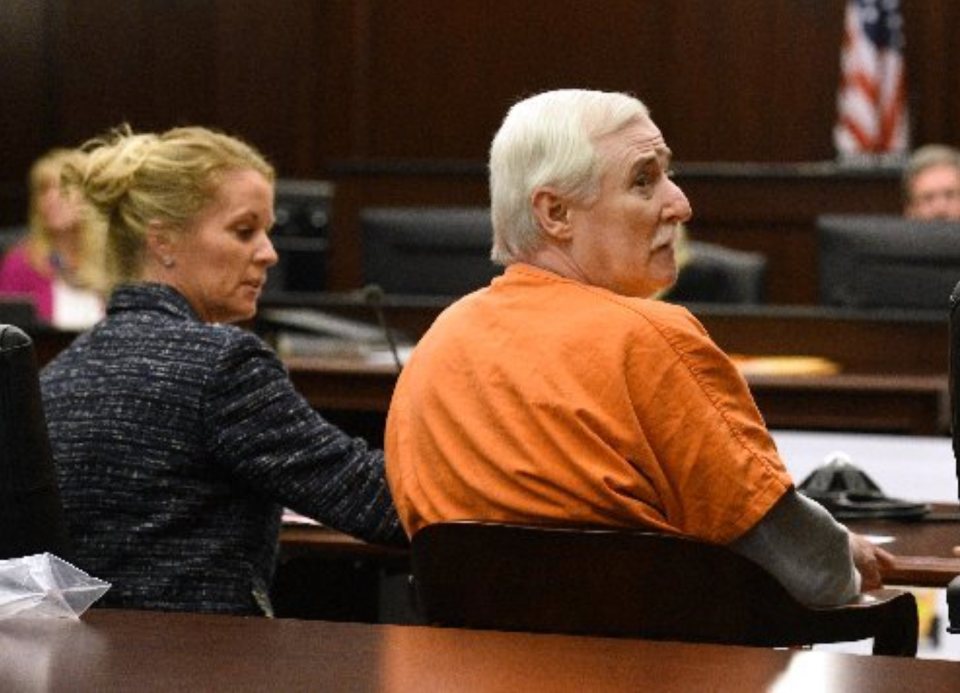Donald Smith seeks relief in death sentence of 8-year-old Cherish Perrywinkle
Donald James Smith isn't relenting in his efforts to avoid execution for the 2013 abduction, rape and murder of 8-year-old Cherish Perrywinkle. He was back in court this week seeking post-conviction relief.
In 2021 the Florida Supreme Court unanimously upheld his conviction and sentence after the registered sex offender was found guilty and sent to death row.
Smith's attorneys stated in the appeal to the Supreme Court that the trial should have been moved out of Duval County because of the immense pretrial publicity and that jurors should not have been allowed to see autopsy photos among other points. The court rejected each argument, noting "the evidence of guilt is overwhelming."
Smith, now 67, had been out of prison for three weeks when he met Cherish's mother at a Dollar General store and offered to take her and her daughters shopping at a Walmart on Lem Turner Road. While there, she let Cherish go with Smith when he said he would buy the family cheeseburgers at a McDonald's at the store. They would never return.

Her body was found near a creek off Broward Road in the morning, and Smith was arrested after his van and photo were broadcast in a statewide alert. He was convicted of raping and strangling the child and dumping her body.
Last year Smith and his attorneys filed a 78-page motion to vacate his sentence based on six new grounds all premised on ineffective counsel. The document doesn't name his counsel, but the first person called to testify during Tuesday's evidentiary hearing was his lead attorney at the time, Julie Schlax. Her co-counsel was Chuck Fletcher.
Schlax testified for three hours until a break shortly before 1 p.m. Fletcher was next to testify. He was questioned for about an hour and a half.
The six specific assertions in Smith's motion are summarized as follows and are the basis of this week's hearings.
Potentially biased juror
Claim 1: "Counsel was ineffective for failing to identify, interrogate, and strike a biased juror, despite having been alerted to the prospective juror’s bias in the pre-selection questionnaire."
This involved a juror who had answered two questions indicating she had heard or read about the case and formed an opinion as to Smith's guilt. For the next question, "If your answer to Question Four was yes, can you follow the instructions of this Court and put aside anything you have heard about this case and render a verdict based only on the evidence and law presented during the trial," she initially checked the "no" box but at some point crossed it out, checked "yes" and initialed it.
"It was incumbent on trial counsel to inquire as to the sincerity of, and source of, Prospective Juror 13's change of her answer," the motion states.

The State Attorney's Office refuted that argument because the Florida Supreme Court already ruled there was no prejudice.
"The Florida Supreme Court addressed and rejected that claim in the Defendant’s direct appeal," according to its response. "Thus, any such claim is procedurally barred by the law of the case doctrine."
Prosecutors also stated that in post-conviction, jurors cannot be subpoenaed to testify to establish any bias.
Fletcher also said during Tuesday's hearing that it looked like a simple mistake that the prospective juror caught.
Life or death decisions
Claim 2: "Counsel was ineffective for failing to properly question and life qualify prospective jurors using the Colorado Method of capital jury selection, and failure to make sure that prospective jurors were properly instructed regarding their role in the penalty phase."
This is saying Smith's counsel failed to properly question prospective jurors about their opinions on the death penalty regarding various factual scenarios. In the Colorado Method of capital jury selection, attorneys rank each juror on the likelihood that the juror will vote for a death sentence. Questioning is designed to create a legal basis for striking pro-death penalty jurors.
The state counters that trial courts are prohibited from requiring counsel to employ a particular method of jury selection. Florida law also precludes attorneys from questioning prospective jurors “as to how they will rule inthe case," according to the state's response.
Fletcher also stressed under questioning that no one says the Colorado Method has to be used and that it's not a gold standard of any sort for selecting a jury.
'Your honor, I object'
Claim 3: "Defendant’s Sixth Amendment right to trial was violated when counsel failed to make legal objections and abdicated their duty to provide competent counsel by allowing defendant to make strategic decisions without adequate consultation."
This is saying Smith's counsel failed to make certain legal objections during his trial, including none "during the testimony of the most important eyewitness," whose name is redacted in the defense's motion but is identified as Rayne Perrywinkle, Cherish's mother, in the state's response. Counsel also failed to object to discussion of a rope, a 911 call and digitally altered photographs.

Schlax said in court Tuesday it was her strategy not to interrupt the testimony of Cherish's mother. Her arguing with her wouldn’t accomplish getting one or more jurors to believe in Smith, she said. They wanted her on the stand as little time as possible.
“We wanted to limit the display of that mother’s anguish, which I don’t think anyone ever suggested was not sincere,” Schlax said.
Rayne Perrywinkle sat quietly in court Tuesday with her hair covering her face most of the time. She got up and left when the questioning involved her daughter's cause of death.

Another contention is that Smith's counsel did not explain what issues were waived when he instructed there be no cross-examination of Rayne Perrywinkle. That decision should only be made by an attorney, his motion states. He made the decision after the state played her emotional 911 call, and he was "not in the frame of mind to make an intelligent or rational decision."
Prosecutors responded that an attorney is not ineffective for following a client’s wishes or instructions.
"Even if this Honorable Court disagrees with the State's position that the questions were not leading in nature, there is no prejudice due to the lack of objections to ... testimony because the jury would have convicted the Defendant of kidnapping, sexual battery and first-degree murder based upon the overwhelming evidence of guilt," according to the prosecution's response.
A flawed process
Claim 4: "Mr. Smith’s trial was fraught with procedural and substantive errors which cannot be harmless when viewed as a whole, since the combination of errors deprived him of a fundamentally fair trial."
Smith says the process itself failed him based on the sheer number and types of errors involved in his trial at both the guilt and penalty phases.
The state responded that this too is procedurally barred: "A defendant may not raise a claim of cumulative direct appeal errors in postconviction proceedings. If a defendant wants to raise a claim of cumulative error regarding the trial errors, he must do so in the direct appeal. Although the Defendant raised a claim of cumulative error in the direct appeal, he may not have included all the issues he now seeks to raise in his motion."
Expert witness backfires
Claim 5: "Mr. Smith’s Constitutional rights were violated which counsel deficiently listed and called Dr. [Heather] Holmes as a witness during his penalty phase trial, resulting in prejudice."
By calling the clinical psychologist as a defense witness, Smith's motion says it subjected her to cross-examination that allowed extremely damaging testimony to be heard by jurors during the penalty phase. "This included her inflammatory, and seemingly biased, description of Mr. Smith as 'the most dangerous pedophile she had ever met,' alongside her extremely damning conclusion that Mr. Smith had no available mitigation available to present on his behalf."
Prosecutors countered that calling Holmes to testify was "necessary to establish the mitigation that the State failed the victim by releasing the Defendant from prison instead of committing him in a Jimmy Ryce proceeding." He should have been behind bars and never had the opportunity to be tempted back into such a heinous crime if the state had done its job.
Donald Smith: Man charged in Cherish Perrywinkle slaying grew from childhood bully to feared sex offender
"The Defendant agreed with this strategy regarding using his prior record, his drug use, and the State’s failure to commit him in a Jimmy Ryce proceeding, which makes his claim meritless," the prosecution's response states. "Furthermore, an attorney is not ineffective simply because the arguments put forth were notsuccessful."
Dr. Brooke Butler, a psychologist and mitigation specialist for the defense during the trial, said Tuesday that she recommended Holmes to testify because she was familiar with her but was unaware how she felt about Smith.
Holmes was the last to testify the following day Wednesday. She said the trial counsel was fully apprised of what her testimony would be and that she had specific discussions with Schlax and understood her strategy.
Overall impact
Claim 6: "The cumulative impact of counsel’s deficient penalty phase presentation of Mr. Smith’s requires relief."
All of the errors during the penalty phase should be taken in totality and warrant a new proceeding, especially because "counsel ineffectively permitted jurors who strongly believed in the death penalty for crimes like the one Mr. Smith was convicted of to be seated on the jury, according to Smith's motion.

The state responded: "The Florida Supreme Court has repeatedly held that where the individual claims of error alleged are either procedurally barred or without merit, the claim of cumulative error also necessarily fails."
Attorneys will return to court at a later date.
This article originally appeared on Florida Times-Union: Donald Smith seeks relief in abduction death of Cherish Perrywinkle

